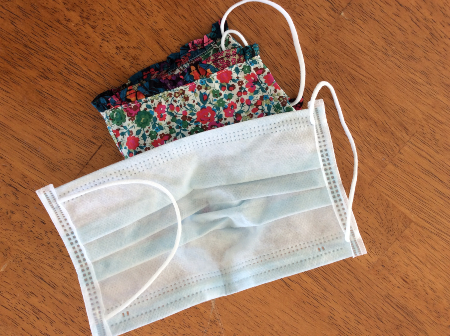 By Nancy Unks
By Nancy Unks
Back to normal. Have you been talking about it? Wishing for it? Looking forward to it? Trying to remember it? I read an article about how we will know when the pandemic ends. Its conclusion: we won’t. And it won’t. Not in a Hollywood cinema sort of way where we triumphantly throw off masks, dance in the streets and hug with abandon.
In my opinion, the pandemic will end uniquely for each individual. For some, it will be when they are vaccinated, so they can visit their grandkids again. For others, the end will be when they can go to a restaurant and be served. For the servers, the pandemic ends when they can go back to work. Sports fans can’t wait to hop on a crowded Broad Street Subway train to the “Linc” and join thousands screaming for (or at) the Eagles.
By contrast, for some the end will just mean the volunteer who used to visit their nursing home to read to them can come back. She was a rare outside contact besides the nurse’s aides who bathe and dress them. For many, this pandemic will never end. The hole left in their lives when a loved one succumbed to Covid-19 is just too big. Or the long-term effects of the disease are too debilitating. Or the lockdown depression lags on and on.
A surprising truth is that many may not want it to end. Sure, they want the contagious sickness to go away, but they don’t want life to go back to “normal,” at least not the way normal used to be. That includes people who spent long hours commuting to a toxic workplace. It also includes many disabled or elderly and others who were already isolated before the worldwide disease.
Some of the isolated have actually had more human contact since the pandemic as others checked in on them. For me, a positive outcome has been that I moved closer to family during the year, so I now see one or two human beings every day. Before Covid, I only saw others about three times a week. I miss those interactions, but I don’t want to go back to the lonely times between.
Other good results have come from some of our Covid cautions and could continue; for example, mask-wearing in cold and flu season. Livestreamed church services and online meetings have made those events accessible to more people. There’s no reason not to keep doing them, now that we know how. We’ve discovered convenience in online shopping and cashless transactions. Why go back to physically trekking from one store to another if we don’t need to?
Maybe, in the post-pandemic world, we can put our energy into more meaningful personal interactions. After experiencing isolation ourselves, we can be more sensitive to people who are feeling left out and depressed. It has been a good season to learn, like Paul, “the secret of being content in any and every situation” (Philippians 4:12). What was Paul’s secret? It was his relationship with the living Christ that gave him peace and strength. That union with Jesus is available to us in the pandemic and the yet nebulous normal.
